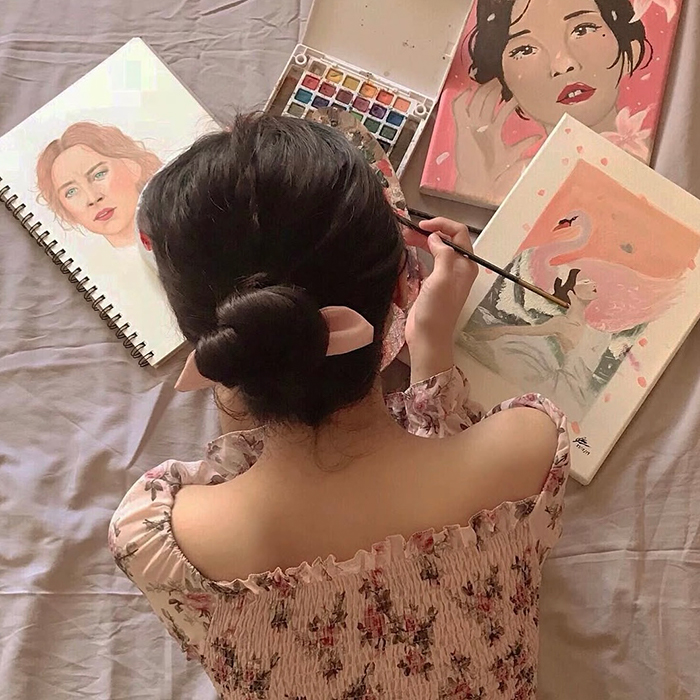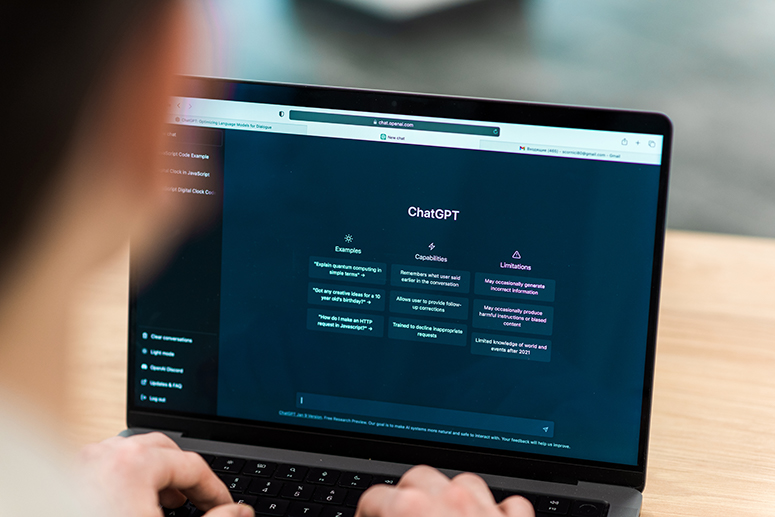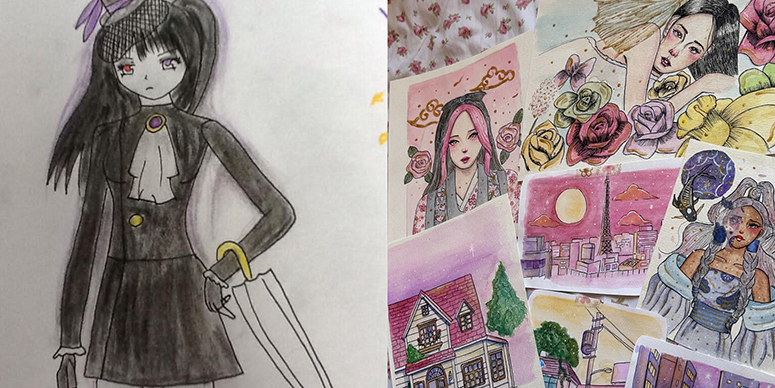If we keep letting AI write our stories, who will remember how we felt?
I haven’t written like this in a while. Not a memo. Not a press release. Not a brief. Just for the sake of it. Finishing an article felt like sending a message in a bottle: uncertain who would read it, but certain it had to be written.
Now, the words came less often. I told myself it was the weight of being a full-time government employee while freelancing. But deep down, I knew it wasn’t just the career path. I couldn’t treat my craft the way I used to. The real reason? Maybe AI.
My friends joke that I’m as wordy and preachy as ChatGPT. But I know that even with all its “eloquence,” it could never replicate the singular voice we each bring to our writing. So I took the teasing in stride, only trying out the bot to generate satire and pompous Facebook captions. What began as a harmless novelty gradually encroached on the very space I once reserved for the best parts of my mind.

Chat, am I losing to AI?
“At first glance, ChatGPT seems like a good solution. You feed all your data into this AI. You ask it to summarize things, to do simple tasks—admin tasks at first. So from this very little reliance, it turns to ‘do my schedule for me,’ ‘brainstorm things for me,’” psychometrician and mental health resource speaker Justine Danielle Reyes tells Young STAR.
AI was the tool I kept in the shed, useful only to trim minor weeds, nothing more. But when I found myself alone in that garden too often, I began inviting AI closer. Not to co-write but to lift heavier loads: parse court briefings, test a plot twist, or sketch a character faster than me. But I stopped standing guard and left the gate ajar, negotiating how far it could help me bloom a plant.

Reyes notes the issue goes deeper than being inconvenienced or our refusal to slow down, but rather a lack of proper time to do things well. “With corporations and institutions doubling down on hustle culture, we’ve all found generative AI as a band-aid solution to keep up.”
The dopamine rush AI surprised me with was short-lived. AI made us all competent writers, giving everyone access to the same metaphors and glossy empathy in reshared ChatGPT captions. In doing so, what was once a mark of our identity was now mass-produced. And in a world where everyone sounds profound, no one truly is.
When creativity becomes a commodity, we lose more than originality

ChatGPT just hit 150 million weekly users, per Reuters, thanks to its image generator. For months, people shared “Ghibli-style” AI art—missing the depth Hayao Miyazaki, a vocal critic of AI, pours into his work. More AI-generated billboards pop up in EDSA, pushing out writers and designers who once made those ads interesting.
“Our humanity is defined by a particular level of suffering or hardship. We lose some kind of character and personality that is only ever shaped by some kind of distress. The greatest things that we’ve seen humankind create always come from personal inspiration,” Reyes expresses.
Technology is here to stay. But before the era of ‘I’ll just ask ChatGPT’ was the tragedy and victory of being human: suffering for every profound thought we earn.
She ties this to the Yerkes-Dodson Law, which states that a moderate level of stress is necessary to push us to do our best. I felt this when I was the only one who couldn’t draw in my artistic barkada. But I kept sketching, inadequate as I was, because of the space to try. The discomfort of not being “good enough” forced me to find my art style. Even those cringey anime drawings made the passionate me, “me.” The same happened when rejections for pitches piled up until my articles found their way to print slowly. Until now, I've sought rooms where I’m not the expert, seeing them as places to learn.
By choosing the slow burn of trial and error, we preserve what makes our work meaningful—building critical thinking, emotional weight and creative resilience. One that makes you proud to say, “I made this,” rather than letting it erase our story in pursuit of a quicker outcome.
Saying “make it sound human” to something that’s never been one
I’m not here to guilt-trip anyone who uses AI as an enhancer in routine tasks. But when you look closer, reliance often starts without us noticing. The bot moves from visitor to tenant, and soon, our own words, ideas, and reasoning begin to recede. Some have gone as far as using AI to copy the work of real-life creatives, claiming it as their own, and that’s where the line is crossed: robbing the essence and labor of the original creators.

But the long hours of questioning everything around you? That’s where the true, albeit torturous, beauty of thinking for yourself comes. Isn’t that how the great minds and makers before us survived? Your ideas are free. They don’t drain water, burn energy, or degrade the environment, unlike AI, which harms the world in the process.
So claw through that first draft, tackle the messy sentences, and embrace the awkward paragraphs without treating AI as a crutch. Technology is here to stay. But before the era of “I’ll just ask ChatGPT” was the tragedy and victory of being human: suffering for every profound thought we earn.


